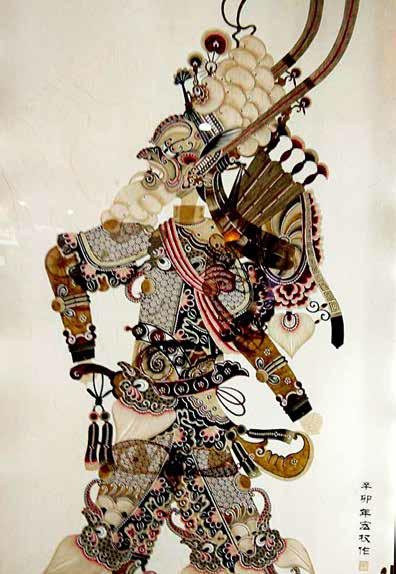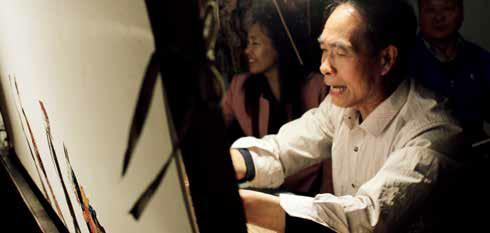The Craftsmen of Longzhong

Longzhong literally refers to the cen- tral region of Chinas Gansu Province. At an altitude ranging from 1,200 to 2,500 meters, its landform is a typical Loess Plateau. The region is home to an early Chinese culture known as Majiayao(literally, “horse home kiln”), which originated there 4,000 to 5,000 years ago.
As a junction between farming and nomadic civilizations and a vital node along the Silk Road, the Longzhong region has been richly endowed with cultural relics and various folk crafts.


Over the past few years, Yan Haijun, a Chinese contemporary non-fiction writer, has been investigating the state of the arts and crafts in rural Gansu. He interviewed more than 200 craftsmen and selected 25 crafts including straw plaiting, embroidery, paper-cutting, masonry, blacksmithing, shadow play, carpentry and suona(a woodwind instrument) playing, in search of stories for this book.
Yan declared that these crafts are indispensable in terms of the production and daily life of the local people in Longzhong. Some are related to daily public needs while others concern rituals and spiritual beliefs.
He explained that there were two major criteria for selecting these crafts: First, he looked for craftsmen who were ordinary farmers doing exquisite workmanship, and second, he wanted to find craftspeople serving ordinary farmers.
“Everyone deserves a biography,” Yan asserted. “This book is not only about craftsmanship, but also the life stories of craftsmen. It is about the relationship between individual craftsmen and society and about the social connection between them and their clients as well as the social structure embodied in these ties.”
“Since the turn of the 21st century, China has been enthusiastic about telling the world the stories of Chinese farmers, and Yan Haijun is one of such storytellers,”noted Qiao Xiaoguang, a professor and doctoral tutor at the Central Academy of Fine Arts. “The book touches hearts by providing a record of the daily life of todays Chinese village craftsmen.”
Famous Chinese contemporary writer Han Shaogong commented: “Every occupation has its wits, which could be knowledge, aesthetics, and civilization. The author sees the person through the works and reads his or her mind through the personality. His exposure of the billowy creativity embedded in the silent grassroots is amazing and inspires great respect—he has brought to light the abundance and profundity of the vast base of civilization.”
Born in Gansu Province, Yan Haijun has long worked on surveying and researching Chinese issues related to agriculture, rural areas, farmers and the excavation of indigenous culture.
Over the past few years, Yan has published books including China in Yabian and Guanqiangli: A Persons Journey from Village to City, some of which have won provincial and national awards.

